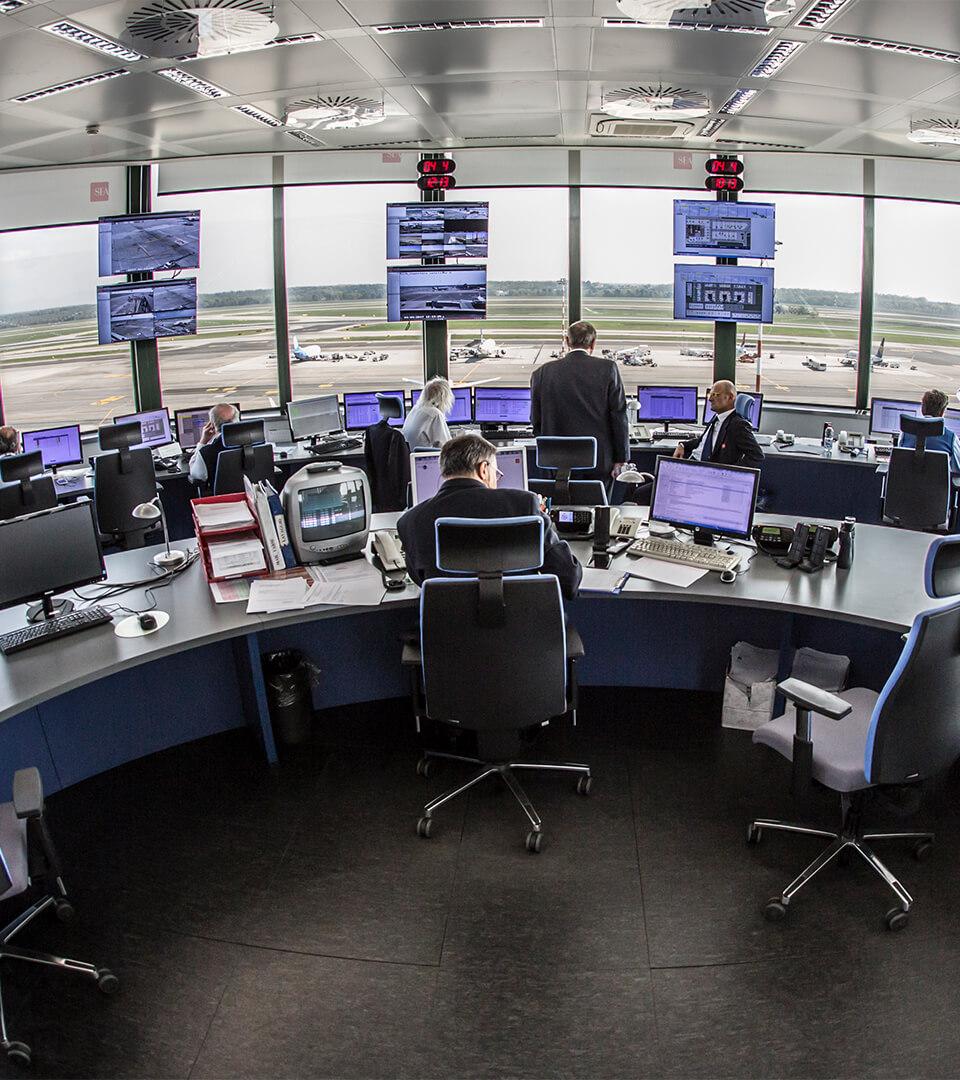The SEA Group is strongly committed to providing quality services in respect and protection of the environment, based on the following principles:
- Extensive compliance with regulatory requirements;
- An ongoing commitment to improving the environmental and energy performance;
- Education and involvement of all actors involved in the airport system for a commitment towards respecting and protecting our common environmental heritage;
- Priority given to the purchase of products and services which adopt similar environmental sustainability parameters, with particular attention to energy saving, the reduction of atmospheric and noise emissions and water conservation;
- Identification of sources and controls of CO2 emissions produced, both direct and indirect, through the involvement of the stakeholders, in order to reduce greenhouse gas emissions in line with the Kyoto protocol;
- A constant level of monitoring and verification of the processes related to the energy, atmospheric emission, noise and water cycle aspects, and in general the various phenomenon concerning interaction with the ecosystem;
- Highly developed system of listening and communication with a wide range of external actors to ensure transparency and sharing.
The introduction of the Group environmental policy is based on the commitment to a dedicated structure which ensures maximum attention to the principal strategic aspects and the operating implications, in addition to guaranteeing the daily inter-departmental involvement of all organisational units whose activities have a direct or indirect impact on the reaching of the environmental objectives.
Under this policy in 2004 an Environmental Management System was drawn up, which in 2006 achieved the ISO 14001 Certification, which was reconfirmed in 2009 and in 2012, and in May 2015 was renewed for the subsequent three-year period.
With a view to a constant and close monitoring of the environmental impact of its activities, the SEA Group works together with a number of external bodies with environmental and regional responsibilities.
The range of environmental aspects managed is particularly extensive: water, air, noise, climate change, energy, waste, electromagnetic fields, light pollution and landscape.
The extensive experience matured since 1998 with the incorporation of SEA Energia and its cogeneration (regeneration) plant has seen the formal consolidation in October 2013 of the Energy Management System of SEA and its ISO 50001 certification by CertiQuality. In the course of 2016, these activities continued and the system was further completed and strengthened.
Airport Carbon Accreditation and Carbon Neutrality of the Milan airports
The SEA Group in relation to CO2 emissions has acted effectively in reducing emissions and in particular those from activities under its direct control or in which significant influence is exercised (scope 1 and 2). According to in depth analyses performed on the data and information for the year 2016, it is believed that renewal of the "Neutrality” level is possible for 2016.
Airport Carbon Accreditation offers four possible levels for accreditation:
- Mapping – checking of emissions under the direct control of the airport manager (scope 1 and scope 2 application field).
- Reduction – in addition to the level 1 (Mapping) requirements, creation of a plan designed to reduce emissions, focused on the continual minimisation of emission levels (scope 1 and scope 2 application field).
- Optimisation – in addition to the level 1 (Mapping) and 2 (Reduction) levels, the calculation of the airport emissions of the stakeholders and their involvement in the drawing up of an action plan (scope 3).
- Neutrality – in addition to levels 1, 2 and 3, the reaching of the “Carbon Neutrality” objective for emissions under the direct control of the airport manager (scope 1 and 2) with the acquisition of offsets.
- Scope 1 – Direct emissions – Emissions associated with sources owned or under the control of the company.
- Scope 2 - Indirect Emissions - Emissions associated with the generation of electricity or thermal energy acquired or consumed by the company, which is physically emitted within the corporate scope.
The European project
The involvement of the company in international research and innovation projects was further developed, principally focused on environmental and safety/security issues. A brief summary of the 2016 projects is presented below:
- Projects that are part of the H2020 Programme:
- e-infrHealth: management of health safety connected to international flows;
- CAPP: protection of strategic infrastructures;
- TRANSURE: European ecosystems for cyber security and resilience.
- Projects that are part of the Interreg Central Europe Programme:
- DECIBEL.AIR: integration of solutions on noise abatement;
- NICNES: innovative interventions for energy insulation and soundproofing.
A brief description is provided below on projects started in previous years and still in progress or completed in 2016:
CASCADE: important energy management project completed in 2015.
DREAM: The project is in the completion phase and the activities are proceeding as per the programme. A project focuses on the issue of energy, principally involves Malpensa and was undertaken to optimise consumption and to involve the various sources, including also, naturally, SEA Energia.
WATERNOMICS: project started in 2014 and aimed at optimising the water cycle at Linate airport. The final activities for completion are in progress.
OCTAVE: project launched in June 2015, which focuses on security processes related to biometric recognition (voice). The activities are proceeding as per the programme.
